‘I’m a Zionist’: Biden’s 50-year political career defined by ironclad support for Israel
By Xavier Villar
Almost three weeks after his disastrous televised debate performance, Joe Biden announced that he would not run for a second term as the president of the United States.
In a letter to "My Fellow Americans", dated July 21, Biden expressed that, while serving as president has been "the greatest honor of my life," he now believes that "stepping down is in the best interest of my party and the country."
In a follow-up post on X (formerly Twitter), the Democratic president expressed his "full support and endorsement" for vice president Kamala Harris as the Democratic nominee.
"Democrats, it’s time to unite and defeat (Donald) Trump," he wrote. "Let’s do this."
He also announced plans to address the nation later in the week to elaborate on his decision.
While it appeared inevitable that Biden would withdraw from the race given his failing physical and mental health, many Democrats expressed relief over the decision.
On the other hand, Republicans, who had centered their campaign on Biden, projecting him as a weak candidate who cannot even speak or walk properly, now have to look at Plan B.
It’s still unclear whether Biden will continue to be the president until the November general election or quit but commentators are already discussing his political legacy.
His most significant foreign policy legacy is tied to Gaza. His administration will be remembered for its unwavering support for Israel’s genocidal war against Gaza, which has already claimed more than 39,000 lives, most of them children and women.
Biden’s ironclad support for Israel was evident even before he took office. However, since October 2023, he has gone out of his way to not only support but sponsor the war against Palestinians in the besieged Gaza Strip.
“You don’t have to be Jewish to be a Zionist. I consider myself a Zionist. Without Israel, no Jew in the world is safe,” he declared a few months ago.
As someone proud to call himself a 'Zionist,' Biden appeared determined to remain true to his commitment to Israel that goes back more than half a century.
He considered his meeting with the head of the Israeli regime, Golda Meir, in 1973 as "one of the most consequential" of his life.
As a young senator, Biden returned from his visit to the occupied Palestinian territories so inspired that he began to identify as a "Zionist," a fervent commitment he reiterated publicly on numerous occasions, always reiterating, "I don't believe you have to be a Jew to be a Zionist."
In June 1982, he supported Menachem Begin's regime in its invasion of Lebanon, despite the significant civilian casualties that resulted from it.
His support was so strong and enthusiastic that many had to remind him that the warring parties were obligated to protect women and children.
Four years later, Biden passionately defended the substantial military aid to Israel in US Congress, terming it the “best $3 billion investment” the US had made.
“If Israel didn't exist, the United States would have to create one to safeguard its interests in the region," he said at the time, words that have been registered in the annals of history.
In October 1995, Senator Biden cast his vote in favor of a Congressional resolution to relocate the US embassy in Israel from Tel Aviv to Jerusalem al-Quds.
Upon taking office in 2021, President Biden chose not to reverse Donald Trump's decision to relocate the US embassy to occupied Jerusalem al-Quds, a move enacted in 2018, nor to reopen the consulate in the occupied East Jerusalem, which had previously served as the US representation to the Palestinians.
Biden, like his megalomaniac Republican predecessor, also saw the so-called “Iranian threat,” rather than the Palestinian issue, as the primary challenge in the West Asia region.
As international policy expert Bruno Maçaes recently pointed out, the Biden administration has “systematically avoided any reference to international law or human rights, instead emphasizing Israel as a close partner.”
“To a partner, much is permitted, including the deliberate destruction of hospitals and schools,” he wrote, pointing to the US complicity in Israeli genocidal war on Gaza.
“When Russia conducted similar attacks in Ukraine, Blinken and Kirby condemned them as barbaric. Kirby described attacks on playgrounds, schools, and hospitals as ‘utter depravity.’ However, these remarks were directed at Russia, not Israel. When asked about what the Biden administration would do if Israel continued committing war crimes, the response was strikingly straightforward: ‘We will continue to support it.’”
Biden escalated his support for the Zionist colonial actions in Gaza to extreme levels.
In a fundraising event, he candidly stated, “We are not going to do a damn thing other than protect Israel. Not a single thing.”
This explicit endorsement of the genocidal campaign in Gaza has led the president to perform significant rhetorical gymnastics to justify his unjustified stance.
A few months ago, Biden publicly declared that “Israel should not go into Rafah,” the border town with Egypt housing over a million Palestinians.
However, when it became clear that Israeli forces had indeed invaded Rafah, Biden attempted to downplay the situation by stating that the soldiers had not “entered the city center.”
The Biden administration has been characterized by granting Israel total freedom to bombard and destroy lives and infrastructure in Gaza and across the occupied Palestinian territories.
International Court of Justice (ICJ) this week ruled that Israel’s occupation of Palestine constitutes illegal apartheid, which also serves as a devastating critique of US policy.
It is noteworthy that Biden also dismissed the request by Karim Khan, the Prosecutor of the International Criminal Court (ICC), for the arrest of Israeli Premier Benjamin Netanyahu and military affairs minister Yoav Gallant on charges of war crimes and crimes against humanity.
Biden’s refusal to adhere to international law has facilitated the intensification of Israel's illegal military occupation. The latest advisory opinion from the ICJ, published on Friday, emphasizes that all states have a legal obligation "not to offer aid or assistance to maintain the situation" created by Israel’s denial of Palestinian rights.
Biden’s view on Palestine reflects a classic Orientalist perspective. This is evident from his statement during the so-called "Holocaust Remembrance Week," where he claimed that Hamas is "driven by an ancient desire to eliminate the Jewish people from the face of the earth."
He distorted history and reinforced the Zionist narrative that seeks to obscure the reality of Israel's colonial occupation of Palestine, instead portraying it as a supposed "ancient Muslim enmity against Jews."
The issue with such statements is that they fail to justify how Hamas, a resistance group founded in Gaza in 1987 in response to Zionist occupation and settlement colonialism, could be responsible for the alleged “ancient hatred” toward Jews in the region.
The only way to interpret these statements is that they serve as a megaphone for the Zionist discourse, which attempts to present itself as an innocent victim, a victim that is allowed to bomb four countries in one day and get away with it.
Biden and his administration have stood by Israel throughout the genocide in Gaza, using their veto power to prevent any ceasefire, despite public statements to the contrary.
The United States vetoed up to three distinct ceasefire resolutions in the UN Security Council and rejected two proposals in the UN General Assembly.
The US government spearheaded the movement to suspend funding for the United Nations Relief and Works Agency for Palestine Refugees in the Near East (UNRWA), the main aid organization in Gaza, which the Knesset has declared a “terrorist organization.”
Israel launched a smear campaign against UNRWA, baselessly accusing it of being a front for Hamas, with the support of American media such as The New York Times, and without any challenge from the US administration regarding the disinformation campaign.
It’s clear that the United States has been a direct accomplice in the Israeli genocide in Gaza. The country has been actively involved in the slaughter, bombings, and attacks on defenseless civilians and has led the international effort to cut funding to the most vital aid organization in Gaza.
However, to portray Biden as a messiah, just a few weeks ago, several Western media outlets reported that Biden was "losing patience with Netanyahu."
As political science professor Amal Saad explained in an interview, "The United States has tried to achieve politically what Israel has not achieved militarily."
In other words, the Biden administration and Israel share the same political agenda for Palestine. The only difference lies in how they communicate this agenda to their respective publics.
Xavier Villar is a Ph.D. in Islamic Studies and researcher based in Spain.
(The views expressed in this article do not necessarily reflect those of Press TV)
Leader: Iran has no proxy forces in West Asia
US fighter aircraft shot down ‘in friendly fire’ amid aggression on Yemen
Yemeni FM: Israel’s sponsors accountable for ongoing aggression on Sana’a
Eight Palestinians killed as Israel attacks Gaza school, hospitals
VIDEO | Rome, Milan host new protests in solidarity with Palestinians
Dec. 21: ‘Axis of Resistance’ operations against Israeli occupation
Spain jurists demand ties with Israel ties be cut
VIDEO | Press TV's news headlines






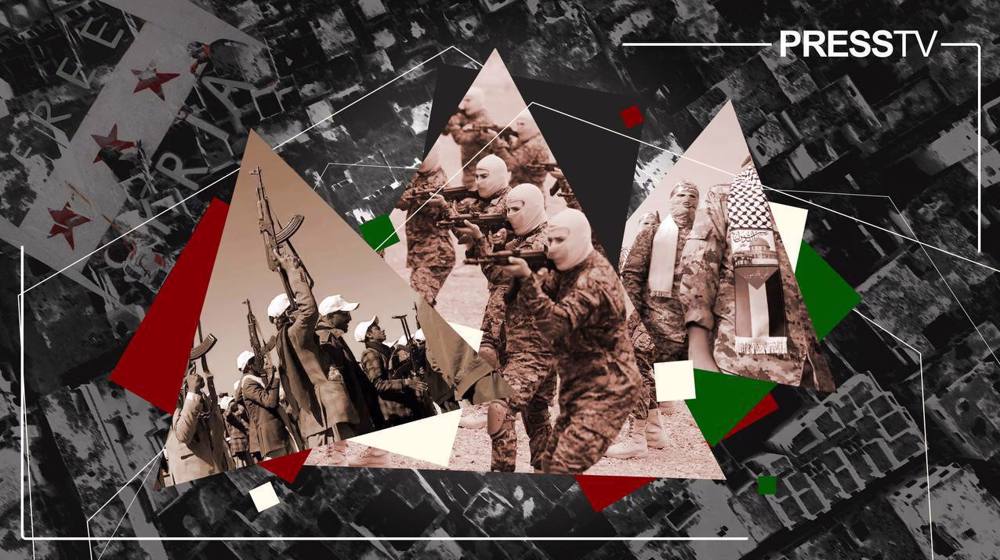
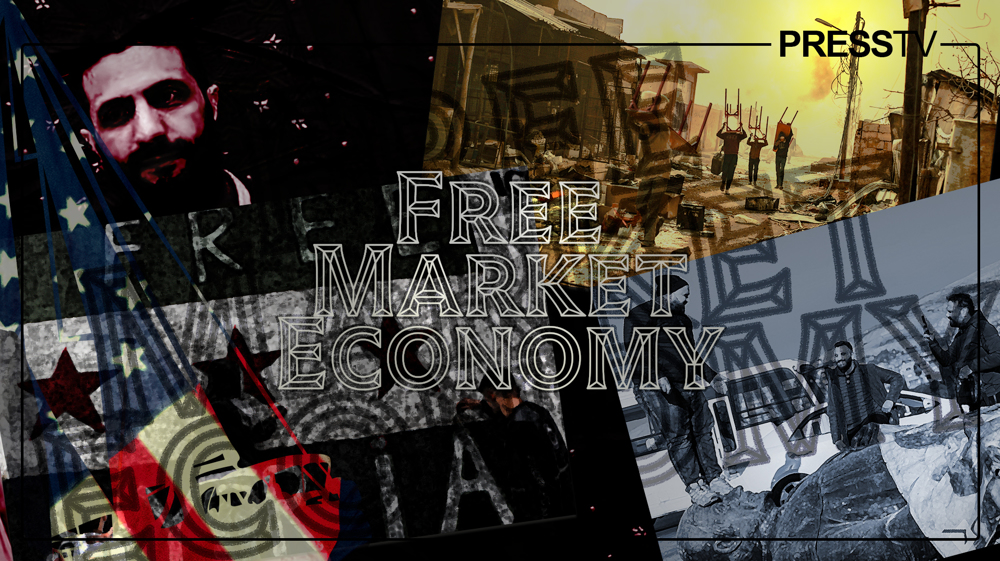



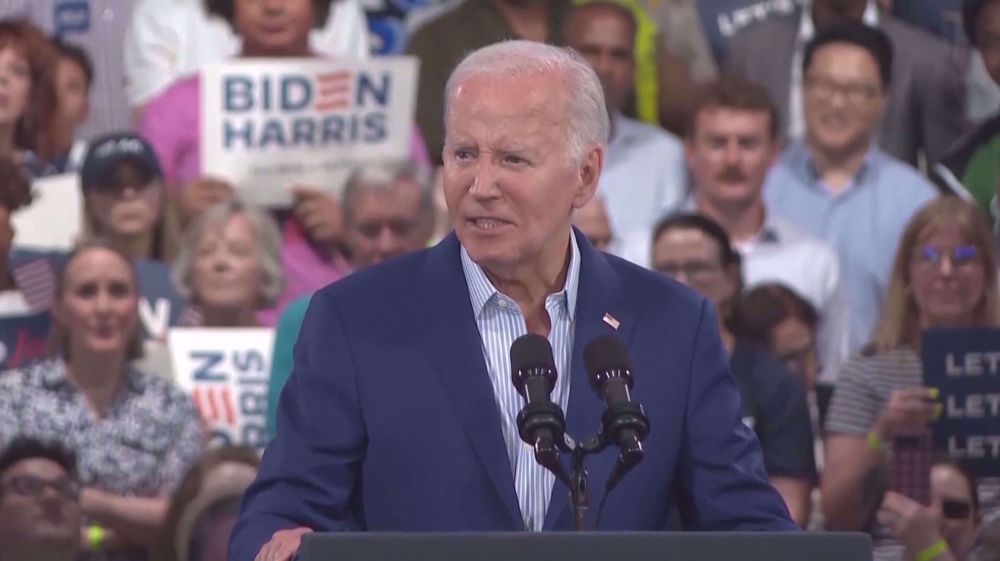
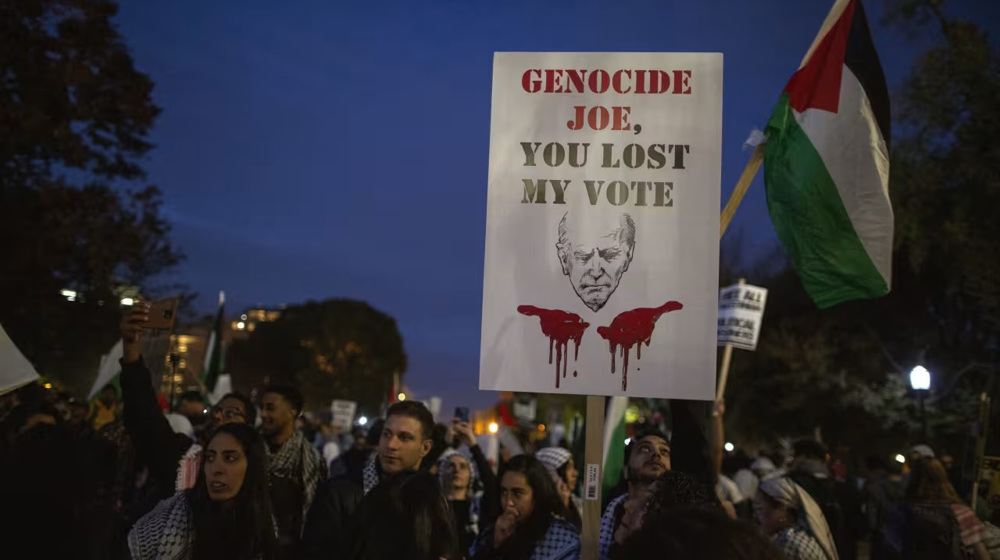
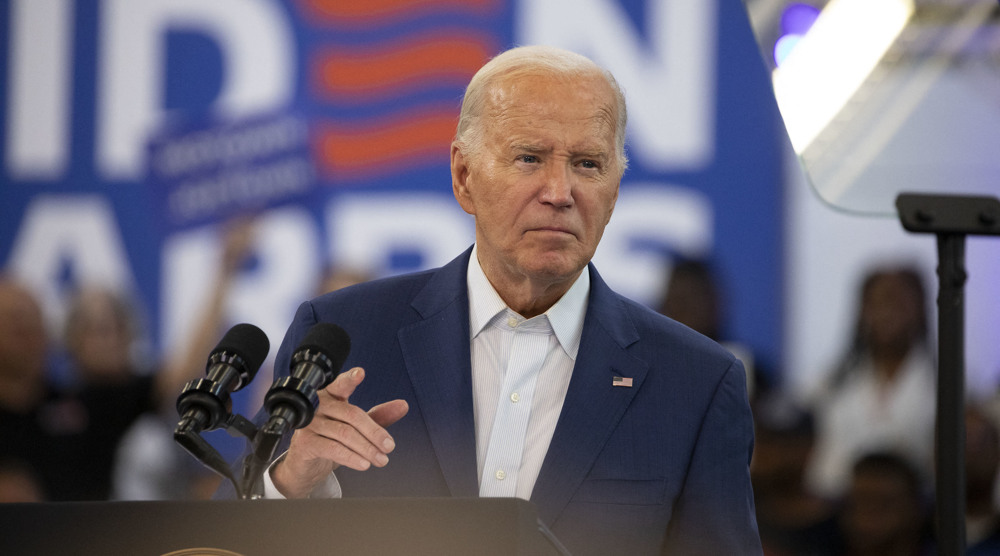


 This makes it easy to access the Press TV website
This makes it easy to access the Press TV website